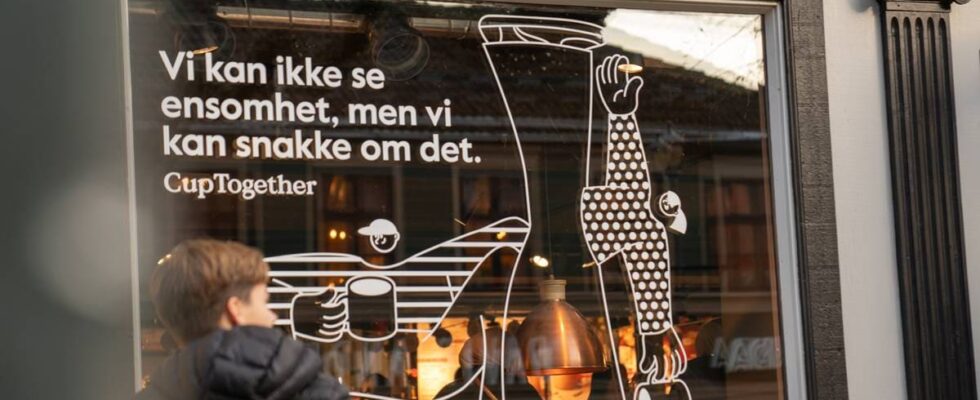The case summed up Advertising expert Karl-Fredrik Tangen is critical of companies using mental health to profile themselves, and calls it “psycho-washing”. He believes that companies only connect to such themes when they have become accepted and are no longer taboo. Linda Berg Heggelund in Mental health believes that companies that want to advertise that they care about mental health must show a commitment that goes beyond putting a slogan on a window. Espresso House, which has received criticism for a poor working environment, defends its advertising campaign CupTogether as an attempt to break taboos and loneliness. The summary is made by an AI service from OpenAI. The content is quality assured by news’s journalists before publication. People stroll down Nordre gate in Trondheim. Some with hands full of shopping bags or a cup of coffee to warm up. Others again go into the cafe Espresso House. There is a reminder in the window. “We can’t see loneliness, but we can talk about it”. It is part of the advertising campaign CupTogether. But social geographer and advertising expert Karl-Fredrik Tangen is critical. – It’s nice that everyone is concerned about everyone having a good time, but when the company talks, they have a different purpose. They must make money for their shareholders. Photo: Sverre Lilleeng / news Easier than pride and power Tangen says mental health is a newcomer in matters that large companies use to profile themselves. In the past, business has been blamed for greenwashing and pinkwashing. He thinks part of the reason is that it can be easier to advertise that they care about people’s mental well-being, than other topics. – The commitment to fashion matters in recent years from advertising and annual reports, “berekraft” and “pride”, is too widespread, difficult to live up to, complicated or criticized, he writes in a chronicle in Mentalt Perspektiv. It was in this chronicle that he launched the term “psychowashing”. Karl-Fredrik Tangen is a senior lecturer at the Department of Marketing at Kristiania University Photo: Lars Tore Endresen / news Tangen believes that companies only connect to such topics when they have gained ground. – They come when it is no longer taboo. They wait until things have become trivial, then they say so. I am afraid that things will be flattened by the people from the business world coming in, he says to news. Linda Berg Heggelund of the organization Mental Helse says that if companies want to advertise that they care, then there must be a little more behind it. Linda Berg-Heggelund is Secretary General of Mental Health. Photo: Magnus Kristiansen – If you say that you want to focus on it, then you have to show both a commitment, which is more about putting a slogan on a window. She says that such campaigns also oblige employers to contribute to a safe working environment. – What is needed is to have good plans for your work towards your employees. That one starts by saying “with us it is allowed to come to work and have a bad day”. You are allowed to talk to your boss. Photo: Sverre Lilleeng / news Espresso House: – A well-intentioned initiative Espresso House is far from the only company to receive criticism from Tangen for brainwashing. He has found several examples of companies that he believes are doing it. The reason why he singles out Espresso House in particular is that they have had several cases in recent years where they have received criticism for a poor working environment. Steffen Greff, national manager of Espresso House, writes in an e-mail to news that he acknowledges that history has shown that they as an employer have room for improvement. Steffen Greff is manager of the Norwegian part of the Espresso House cafe chain. Photo: Jarran Flokkmann – I myself took over the management of the company in April this year and work every day together with our managers to develop ourselves to be the best possible employer for our over 800 employees. At the same time, he believes that as a large chain they also have a social responsibility. That is why they have created the CupTogether campaign. – This is a well-intentioned initiative that tries to lower the threshold for people to meet and strike up a conversation. With our coffee bars spread all over the country, we see that they can play a role as social meeting places, for example for families, students, pensioners and groups of friends, and also for those looking for new acquaintances. Photo: Sverre Lilleeng / news Hear more about the case in Ukeslutt on news Radio: Published 22.11.2024, at 19.44
ttn-69
My companies use mental health in advertising – news Trøndelag – Local news, TV and radio

